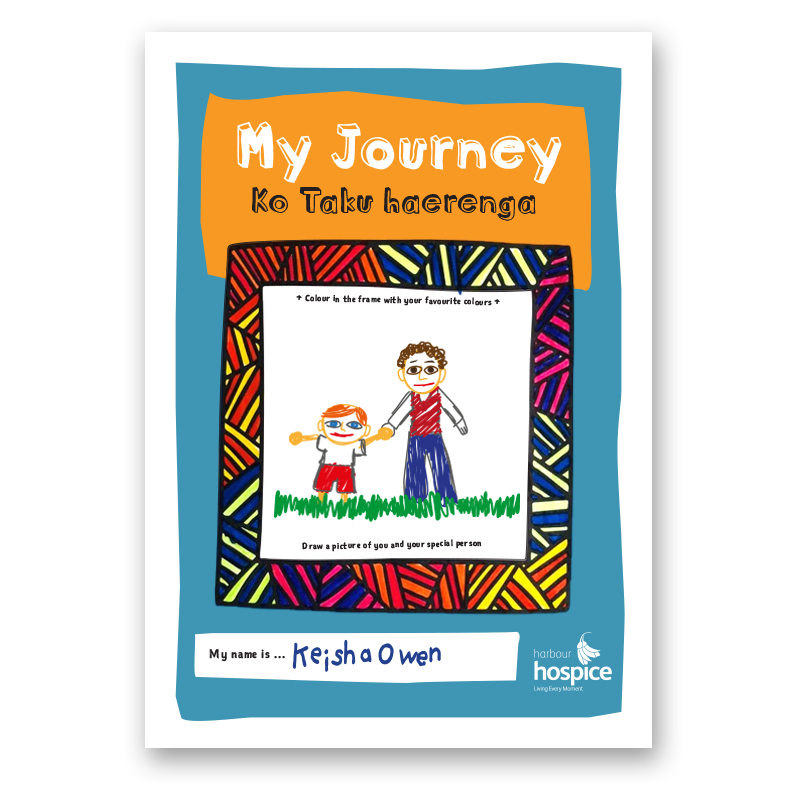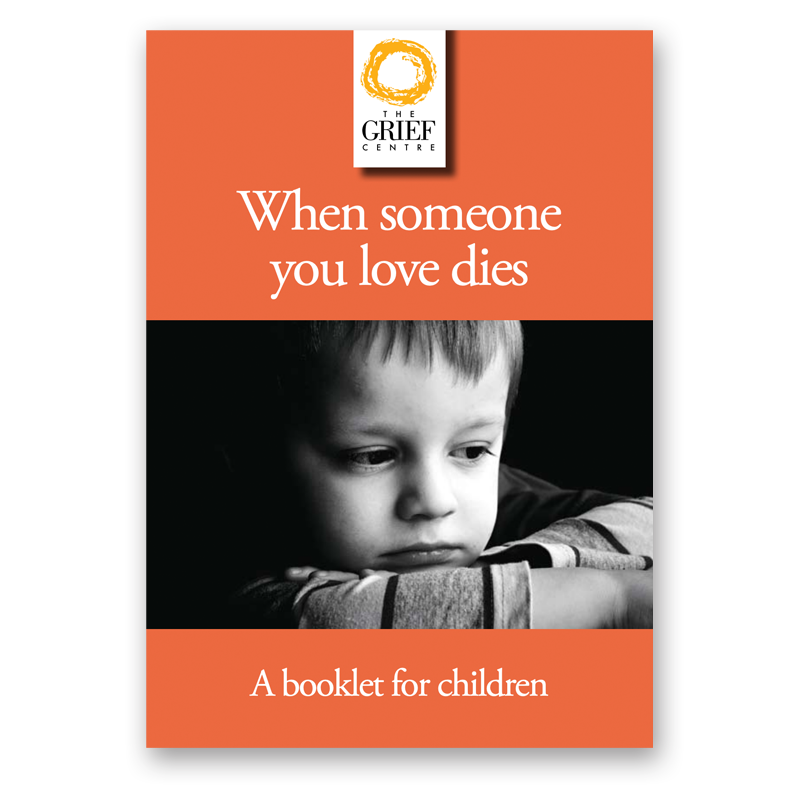Conversations with children
Nobody wants to tell a child that someone they love is dying. But when a parent, sibling or other relative is living with a life-limiting illness, supporting children in your care as they navigate through their understanding and emotions is vital to their ongoing development and wellbeing.
Why it's important to tell children
We often think we should protect children from distress by not talking about death and dying. As upsetting as it may be, children and young people need to know when a parent or someone they love is dying, because not knowing can actually be worse for them.
In many cases children figure out that something is happening by reading body language, overhearing conversations and using their intuition. But if nobody tells them what’s going on, they're left alone with their fears and may imagine things that are worse than the reality.
By having open conversations with children, we give them the opportunity to share how they feel and ask questions. We let them know that it is OK to talk about death and dying and the feelings they might be having.
Honesty builds trust
Children need to trust the adults who are taking care of them. When you're honest from the outset, they learn they can trust you and that you'll be straight with them. They learn that even when it's hard, and the conversations are difficult, they can be honest with you in return.
By speaking openly and honestly, parents can make sure their children get the correct information. Assuring them it's not their fault and that they can't catch the disease or illness is a great place to start.
Being honest about what's happening also gives children the opportunity to make the most of the time they have left with their loved one and to make choices (with your support) on how they might like to say goodbye.
Seeing the whole family support each other through tough times helps children feel included and valued, rather than shut out.
Challenges
You may struggle to find the right time to tell the children. Perhaps they have important events coming up that you don’t want to disrupt, or the sick parent is exhausted, stressed and unable to concentrate and it feels like too much to deal with. Both parents may be afraid of how their children will respond, and worried about the impact this will have on their future.
The children may appear to be giving the message that they don’t want to know, and other people may question your reasons for telling them.
Be assured that by being open and honest with children, you are preparing them and providing them with resources they need to endure their loss. By trusting in your children’s ability to cope, and in yours to support them, you will help them develop the strength they need to face other crises throughout their lives.
Starting the conversation
Be honest and give clear, concise and age-appropriate information.
Children’s ability to understand and make sense of death varies by age, so you need to use language they can grasp. For example, with younger children, you could explain death in terms of bodies not working anymore. Be very clear about this illness being much bigger than a cold sickness and make sure they understand that they did not, and could not, cause the disease. Be relaxed with letting them see that you’re sad – it gives them permission to be sad too. Let them know that it is ok to have lots of different feelings – sadness, anger, worry or even no feelings or numbness.
Sometimes children will appear not to have heard what you said and will change the subject or go off to play. This doesn’t mean that they are not interested or don’t care. They have most likely taken in what you said and just need time to process their thoughts. Let them know that you’ll be available to talk later and provide openings for this, but don’t push.
- Provide practical information, such as what will happen to them, who will care for them, and which things will not change in their lives
- It may be helpful to have another support person available for the children; some parents have described this person as the “safety net” person
- Ask older children if they would like anyone at school to know what’s happening. They may have their own support networks including friends, an older person or teacher.
For older children and teenagers, be sure to give them options so that they have a say in how they want to respond to the situation. For example, they might choose to talk about what is happening, or not to talk. They might like to be involved in the daily care of the person, or not be involved. They might want to have more information about the illness or not to be told any more. Having options and being able to respond in the ways they feel comfortable with can help to prepare a young person for grieving in the ways that are right for them.
Support for you
We offer support on a one-to-one basis, with families or in groups. We can also talk directly with you and/or your children. Bereavement counselling and a range of bereavement programmes are also available to families, whānau and carers.
Your Hospice care team can provide support and tools to help you and your child through this time, and after their loved one has died.
RESOURCES

Kids workbook
'My Journey' is specially created for children to work through their feelings, answer questions and help them understand what’s happening to their loved one.
Support your child to use this workbook, but let them lead. There’s no right way or time limit to complete it. Let them choose which activities they want to focus on.
If you'd like a printed copy please ask your Hospice care team.

Grief support
The Grief Centre has produced a booklet for children which focuses on the grief process. When Someone You Love Dies is available to download.
*If you would like a printed copy please ask your Hospice care team.
Other resources
Skylight Trust allows you to search for resources on different topics for different ages.
Kids’ Health has a variety of great information, including how children grieve, and how to help them.
The Grief Centre has further resources for children that may be helpful.

Te Kahu Pairuri mai i Takarunga ki Te Hana